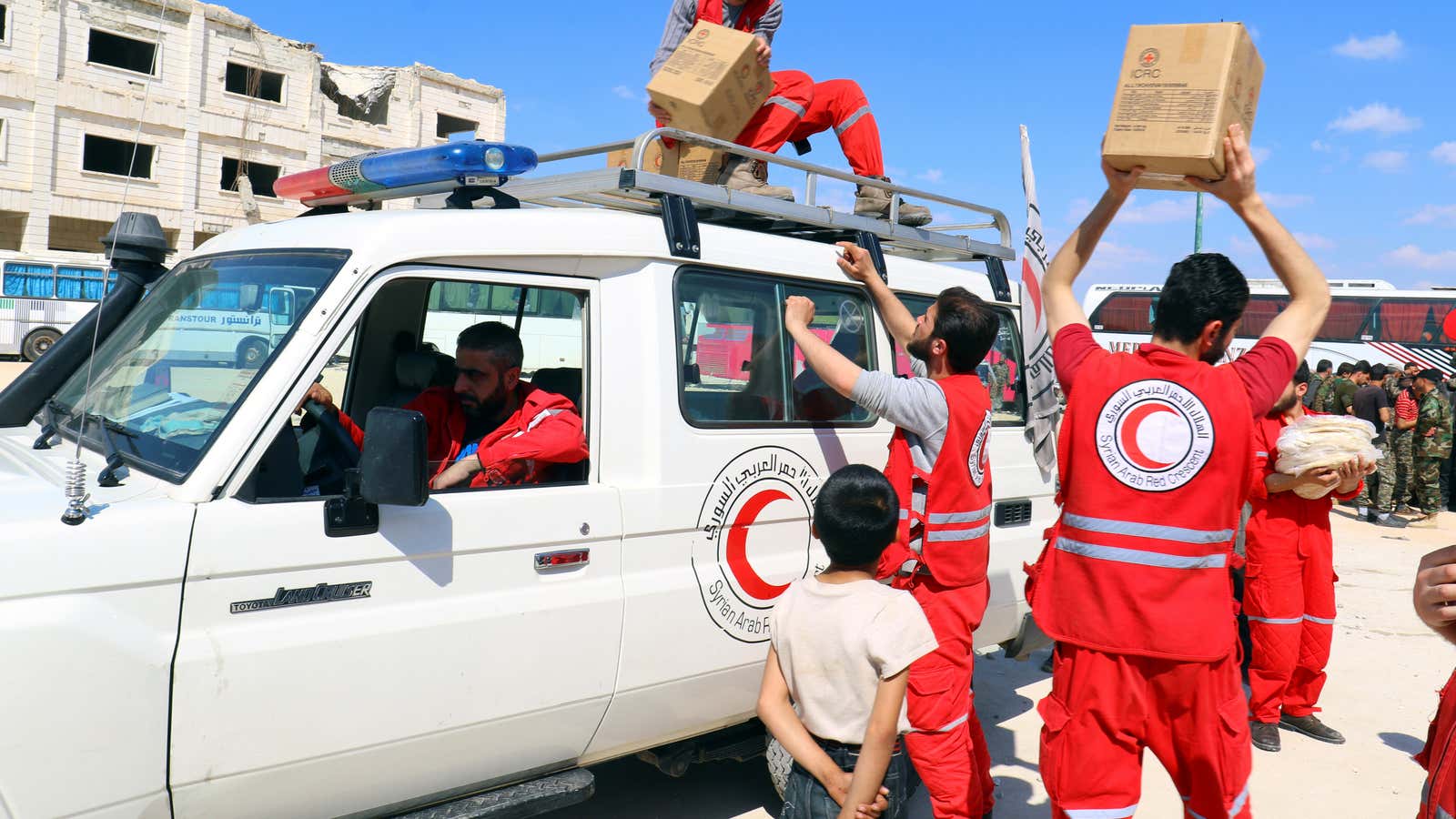The World Economic Forum is accused of many things:
Hypocrisy is leveraged at those who rally for climate change after jetting into Davos, Switzerland on private planes; derision for its exclusivity; excess for the champagne receptions.
But it has never been accused of not taking itself seriously, nor of underestimating its own power and influence.
Much of the media coverage of the Davos conference has focused on the role that member states and businesses should play in addressing the climate crisis. With fires ravaging Australia and elsewhere, the imperative for action is clear.
But this is not the only emergency to which business leaders must be alert. Because today, the very institutions and norms on which our societies and economies were built after the second world war are in jeopardy. A global commitment to the rule of law, on which business ultimately depends, is increasingly under threat, ushering in a dangerous new era.
I call this era the age of impunity: where war crimes go unpunished and the laws of war become optional. While businesses are starting to wake up to the global climate emergency, they are yet to acknowledge that we are facing an accountability emergency as well.
And here, the risks of inaction cannot be overstated.
Nowhere are these risks more apparent than the increasing number of internationalized civil wars. Wars in which militia and proxies do the fighting, often at the behest of global powers, wreaking devastation on countries not their own: Libya is a great example. Such conflicts are characterized by three trends: They are longer in length, more deadly, and lack accountability. Outrages become precedent and precedent becomes the norm—we’ve seen this clearly in Yemen and in Syria—until eventually, the chorus of condemnation fades to a whisper.
Chemical weapons have been deployed and hospitals destroyed in Syria. School buses are being bombed in Yemen. Rohingya Muslims murdered in Myanmar. The list goes on. And the international community has failed to respond in any meaningful way.
Danger on the front lines
As the head of a global aid agency made up of 30,000 dedicated humanitarians working to respond to some of the world’s worst conflicts, my biggest fear is hearing the news that one of our staff or volunteers has been killed.
Yet aid workers, traditionally protected by the rules of war and a commitment to humanitarian principles, are increasingly under threat. Since 2010 there has been a 75% increase in attacks on frontline humanitarian staff. Without accountability, aid workers and civilians become collateral damage at best, and targets at worst.
Global businesses leaders may not immediately recognize the connection between aid workers’ safety and global commerce, but there is a link. States and non-state actors who scorn the rule of law in conflict situations are unlikely to consider the rule of law essential in more mundane matters of dollars and cents.
In times of global turmoil especially, we all look to global powers for leadership. Yet, with the US and UK—the traditional champions of the rules-based order and multilateralism—in retreat, we’re seeing a dangerous shift in the global balance of power.
This is not just from Western countries to counterparts in the East. Notably, this is a shift in power from countries formally committed to liberal democratic principles founded on the rights and freedoms of individuals to autocratic regimes where state power comes first.
As governments flail, businesses and NGOs must chart a way forward and bring accountability back into fashion.
We need to help those on the front line get the facts out. Thank goodness the New York Times and the Syrian Human Rights Observatory have detailed the bombings in Syria in reports from on the ground. But we need participation from other institutions as well. We need the tech companies to help make it easier for citizens and citizen journalists to safely record and disseminate information about what is going on around them. The moment a government moves to shut down the internet—as we’ve seen in parts of Russia, for instance—is precisely the moment we need tech companies to ensure access.
We need military commanders to understand that they will be held accountable for their actions. We saw progress on this front when the German NGO the European Center for Constitutional and Human Rights filed a criminal suit against Syrian war criminals. The Magnitsky act, enacted by the US government under the Obama administration following the torture, detention and death of Russian lawyer Sergei Magnitsky in 2009, has set a precedent for holding individuals accountable for their criminal actions. Let’s see it used in the case of breaches of the laws of war.
We need governments that don’t actually observe the international humanitarian law they say they support to be called out.
I was impressed when American Airlines refused permission to the US government to transport Immigration and Customs Enforcement detainees on their flights. But I would love to see the entire arms industry refuse to service missile systems when they are used to target civilians.
We need UN inquiries into violations of international humanitarian law to mean something. We’re presently facing at least one important opportunity to make this happen in the ongoing board of inquiry launched by the UN in 2019, which should be robustly investigating the series of Russian and Syrian airstrikes against hospitals in Syria. This is a positive step, but it will be of little value unless the findings are made public, and those responsible are publicly identified.
And we need to learn to last the pace not just signal virtue.
It is encouraging that so many people boycotted the 2018 conference hosted by Saudi Arabia in protest over the killing of Saudi journalist Jamal Khashoggi. But it’s rather discouraging that so many people were back the next year without having enforced any real accountability for that crime.
The global accountability emergency is in full swing. Aid workers and civilians under armed assault are its victims. The rest of us need to stand up and defend them.
